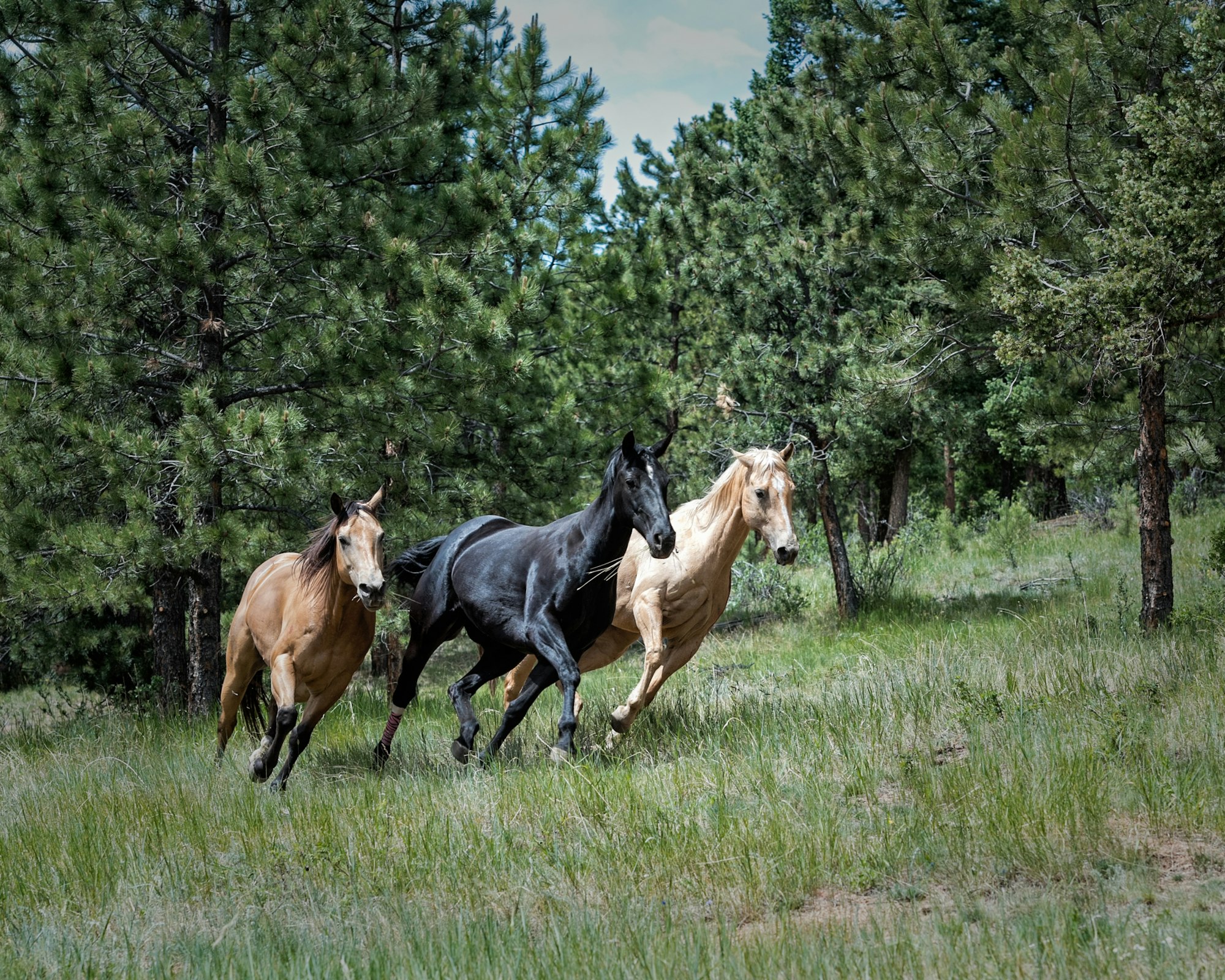Kyla Houbolt, "Mirror"
What if a life well-lived was nothing but running as fast as you can, whenever you could?

You've got to read this Luke O'Neil interview with David Roth. The part where they destroy Bill Belichick is classic, but their frank talk about the media business is both maddening and genuinely hopeful. I came away from this with the sense that I couldn't possibly give my audience (you know, you) enough. They're giving their audiences everything.
You also want to read this gutting post by Lyz Lenz: "Liberal women should not marry Republican men." I think one thing that never ceases to shock me is how abusive men can be.
Kyla Houbolt, "Mirror"
The second and third lines of Kyla Houbolt's "Mirror:" "I will continue to see / a horse in all things." That's what I want. I never want to avoid seeing that combination of freedom, strength, and grace. Horses don't just awe us; wild, they seem free to run, and its no wonder children love them. What if a life well-lived was nothing but running as fast as you can, whenever you could?
It's that idea–not just an idea in us, but in each part of us–that, for me, makes "Mirror" devastating. A lot of us are going to get up in the morning and get our jobs done. We'll work hard. Tasks will be accomplished and checked off the list. And even those of us who know better, who know none of this is real, will be proud. I mean, heck, I wrote in my journal yesterday that I was proud of my LinkedIn. It's the bougiest, most "I'm a corporate tool" tool there is. But it means I have skills I can teach my students ("Here's how to write a good tagline! Here's how to emphasize what you learned during your last job!") and it means I have a profile page ("LOOK AT ME") to show off. (Related: while I get a lot out of LinkedIn, Tressie McMillan Cottom has the definitive take on it in an essay which everyone should be required to read.)
So, again: what if we just ran as fast as we could, whenever? What if this is truly good? If we don't express that longing with our whole being, parts of us certainly want to scream it. Which brings us to Houbolt's first line, said in front of the mirror–"I will continue to clench my jaw:"
Mirror Kyla Houbolt I will continue to clench my jaw I will continue to see a horse in all things I will not be able to ride the horse it is wild it knows better than to take the bit.
"I will continue to clench my jaw." I've got to be determined, I've got to be tough. And sometimes that means a bit too much anxiety, fear, and anger sneaks in. I'm staring in the mirror–determined or tough for what, exactly? By implication, something has to be achieved, something is an obstacle, and the stage is set for a few emotions I don't need.
I watched this powerful TED talk by Haydee Alonso recently. She spoke about post-graduation depression. How for 3 years after getting the schooling and skills she wanted, she was depressed. She mentioned that when she was younger, she felt that the "worst thing that can happen is for you to stay in the exact moment where you are now." She connects this to a resilience she once had.
I confess I'm torn. I want to "continue to see / a horse in all things." There's a wild freedom in myself that needs to be known. Do I need a clenched jaw? Do I need to always be in motion? Those are more difficult questions. Determination is good; fear of being trapped can be good, too. But at some point, we aren't horses. We are tasked with seeing the horse "in all things," but the lesson is more cryptic than a first glance allows.
The poem acknowledges this tension. How could one see the horse and not want to be it?
I will not be able to ride the horse
it is wild
it knows better
than to take the bit.
You can't be the horse. You can't be a part of you. What's crazy is that you can't even be the whole of you. If you wanted to go full speed ahead and take everything to extremes in the name of freedom, you wouldn't be you.
So where does that leave us? There's the conventional world of our everyday jobs and an ideal promise of wild freedom. The latter isn't fake. Rather, it is both tough to use and deeply attractive. For now, I'm focused on knowing the freedom I have. I'm watching a few people tear themselves apart despite having everything: jobs and families which love them, all the encouragement and attention they could possibly want, health and good food and plenty of toys. I guess I need to step back and remember that it is children who see horses as attractive, not so much adults obsessed with controlling everything.
